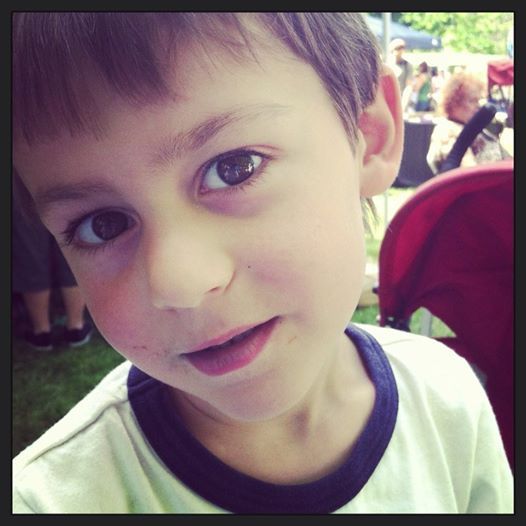
"What's the most creative way you've ever punished your kids?"
I was tuned into a local radio station when I heard this question, and I thought to myself, Really? People are still punishing their kids?
Maybe my perspective as a trained teacher and social worker is unique, but I don't see the point of punishment. Over the years, I've learned trauma response, crisis intervention, behavior management, developmentally appropriate practice, and positive parenting strategies. I know a lot, but nothing so potent as this one thing: Punishment just does not work.
Here's a few specifics on why it doesn't work (except in the VERY short-term -- and parenting is NOT a short-term project), and what you can do instead to foster connection and cooperation in your home.
1. It hurts: The goal of punishment is to cause discomfort (or even pain in the case of corporeal punishment) in order to get children to do what we want. Regardless of whether or not our desires are the "right thing," the act of inflicting punishment always creates an "us vs. them" rift between adult and child. This divide diminishes closeness and communication -- even if you don't want it to -- and the result will be lost trust and decreased credibility as an ally.
THIS DOES NOT MEAN YOU DON'T HAVE BOUNDARIES! Structure and limits are essential for creating security for young people. It is crucial that parents hold limits from a perspective of safety for kids: "I will not let you touch the hot stove," and emotional regulation for adults: "I can't get you milk until I finish my dinner, because if I do, I will be angry." This is reality enforced with love, not punishment.
2. It's coercive: A lot of times, kids are punished for behaving in socially unacceptable ways. For example: yelling, screaming, and aggression. Unfortunately, this is normal! Research indicates that children are generally terrible at regulating their emotions because their prefrontal cortex (executive function) and other complex brain structures that allow them to control themselves are not well-developed yet.
Dr. Becky Bailey's work shows that punishing children for behaviors they exhibit when they are stuck in the emotional (limbic) or fear (brain stem) parts of their brain is not only ineffective at creating long-term learning, it hinders the syncing and integration of the various parts of the brain. Ironically, punishment hampers the very wiring that would produce better self-regulation and impulse control!
3. It's punitive: This is often the case for perceived moral infractions like lying, sneaking, or stealing. Children who lie, cheat, or steal are often testing out behaviors innocently (as in they honestly don't "know better"), or they have seen others model them and are following suit. Other times, these behaviors are a bid for attention. If you react with punishment, you are reinforcing disconnection, exactly the opposite of what would help them feel safe, understand themselves better, and stop the behavior.
Instead of blame and shame in these scenarios, frame the situation in terms of impact. First, get thyself calm! If you are upset, you will not be a helpful guide for the young person. Then offer an objective overview of what happened and reflect feelings. This is a basic restorative justice model.
4. It's an empathy-killer: When you punish, you reduce a child's ability to focus on another's experience and be accountable. These are the roots of empathy and compassion, which are the precursor to healthy relationships and a well-functioning society. Punishment always brings the focus of the punished onto themselves. One cannot think of others, acknowledge wrongdoing, or aim to make amends while being made to suffer. As an alternative, discuss feelings and impact. This provides a start for being able to "put yourself in someone else's shoes."
As parent educator Pam Leo likes to say, "You can't teach children to behave better by making them feel worse." Next time you get into a power struggle, or feel inspired to punish, no matter how creatively, stop and breathe for a minute. Then, take a less reactive and more authentic action: keep everyone safe, express your feelings, and narrate what happened and what effect it had.
This is where true discipline -- teaching and learning -- can begin.
A version of this article was originally posted at www.sarahmaclaughlin.com where Sarah offers science, skills, and support for calm, cool, and compassionate parents.
